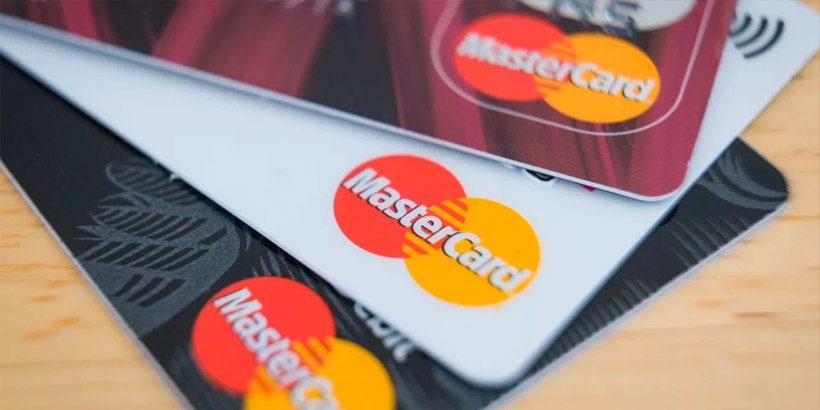MasterCard patented the technology of "anonymous blockchain"
But the life of cryptocurrency holders will not be easier.
Last week, MasterCard received several patents in the field of blockchain technologies, according to CNN and other sources . One of them is called “Method and system for direct anonymous blockchain transactions”, which opens the way for companies to create their own anonymous blockchain for conducting transactions. Patent applications were filed at the end of 2016, and now they have been finally approved. The text of the application can be found on the website of the US Patent Office.

It would seem that this bike has already been invented: there are public and anonymous blockchains. Transactions in the same bitcoin or broadcast can be traced from the moment the coin is mined to the final recipient, it is only a matter of identifying the owner of the wallet. Need anonymity - contact Monero or a similar cryptocurrency. However, MasterCard is trying to sit with its patent not even on two chairs, but on the seats of the whole stadium: here it is using “blockchain technologies”, and “anonymity for the outside world”, and “fixing all payer data” and much more.
Wannabi blockchain
The patent application states that the main reason for the weak proliferation of blockchain technology in the classical financial sector is the impossibility of maintaining bank secrecy, that is, anonymity of transactions. In addition, there are several “solutions” in the patent that suggest that Mastercard is just following the fashion, and not trying to introduce the use of a decentralized and secure payment system.
In its application, MasterCard proposes to use a third-party server on which the base of all users will be based with all the accompanying information about the nature of the payer (natural or legal person). When a transaction request is received, the server will generate two hash values. The first is with the details of the operation. At its base, a second hash value will be generated, which will carry data about the sender of the payment. It is the second hash that will be sent to the blockchain to perform the operation. Thus, MasterCard offers to confirm the integrity of the transaction, leaving the parties to the transaction anonymous.
In fact, the “anonymous” system will be only for the outside world, as it is now happening with ordinary banks. Nevertheless, “interested” persons, first of all MasterCard, will have access to the data. Of considerable concern is also the “server”, which will generate hashes for sending to the blockchain, and directly - its security and stability. In general, this whole system raises a lot of questions, but the most popular ones are “Why?” And “Why is there a blockchain?”, The latter being the most acute.
MasterCard and cryptocurrency
In the past few months, MasterCard has increased its activity in terms of blockchain development. There have already been claims on the network that the payment system uses block technology to combat carders, to increase security, and so on.
At the same time, MasterCard actively fought and is fighting the spread of cryptocurrency . MasterCard's hysteria on the dangers of cryptocurrency began in 2015, when in one of the reports for investors Bitcoin was recognized as the most dangerous competitor of the payment system. At about the same time, MasterCard began to take active steps to “drown” cryptocurrencies as a means of payment.
The strongest blow was dealt through a ban on direct purchase of cryptocurrency using plastic cards to a number of large banks, and for all others, a system of special payment recognition codes was introduced (to increase the transaction fee). Such a decision resulted in errors and double write-offs for users.
The general director of the company, Ajay Banga, in his interview to the publication Economic Times openly called cryptocurrency a tool of crime:
Today, Bitcoin will be enough for me to buy one bottle of water, tomorrow - two, and the day after tomorrow - 9000. But this does not work. Any currency must be stable and transparent, otherwise all global crime will begin to use it. Why do ransomware authors demand ransom in bitcoins? Why does China put pressure on the cryptocurrency market?
Then why all this movement?
At the same time, the company “drowns” with one hand and “builds” with the other. The vulnerability of centralized systems against peer-to-peer systems is obvious. Since 2013, MasterCard has been actively developing its own fintech solutions based on blockchain technology, but for existing cryptocurrencies, there is little good in this.
MasterCard has been struggling with alternative phenomena for itself and Visa for many decades. At the end of the 90s and the beginning of the 00s, a “fashion” swept across the EU and the rest of Europe to create national payment systems that undermined the monopoly position of the “big two” represented by MasterCard and Visa. Now the main threat comes not from national governments, which have adopted the current rules of the game and are no longer trying to fight globalization, but from the cryptocurrency segment. If only because cryptocurrencies do not have a country of jurisdiction and are not limited by anything except the need to access the network.
Thus, MasterCard pursues a quite simple goal: squeezing the maximum out of the blockchain, creating an alternative peer-to-peer ecosystem, all of whose key nodes will be in MasterCard’s hands, that is, maintaining its own monopoly position in the market. This rate is quite successful, since the company will be able to enlist the support of politicians and central banks. The company's board clearly understands that plastic cards, although they are now the main final instrument for making payments, but there are already a lot of alternatives and the company suffers permanent losses due to the “shortfall” on commissions. Therefore, under the MasterCard wing, more than 30 different “pocket” blockchain projects are being developed, which have nothing in common with the cryptoindustry, except for peer-to-peer.
